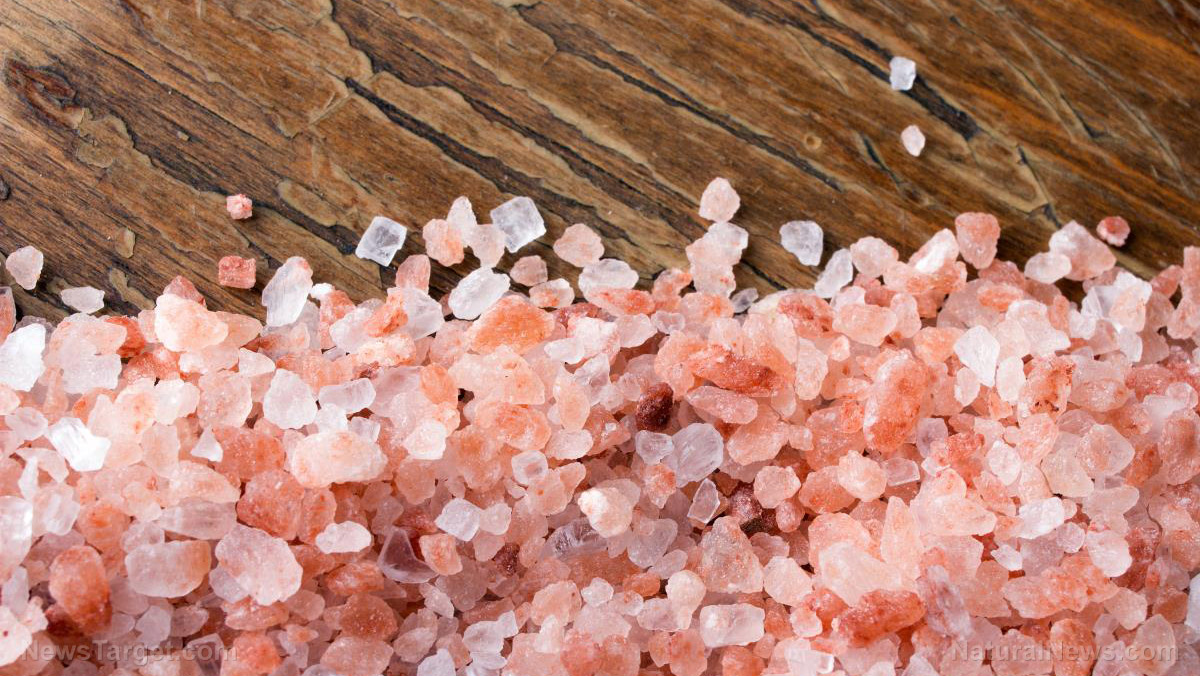Secrets revealed: Five daily habits of people who age well
05/26/2017 / By Tim Wesley

Getting old is unavoidable; growing sick as you age is not. While there’s no Holy Grail for youth, it is possible to age well and that starts by making the right lifestyle choices. Here are five helpful habits to aging well.
- Exercise regularly – Age gradually slows down the body. It causes a decline in heart rate, stiffer blood vessels, slower reflexes, lower bone density, and weight gain. This, in turn, can lead to a spike in LDL (bad) cholesterol and increased blood pressure and sugar levels. Since these changes can appear as early as your thirties, it’s best to start exercising now. Remember that using your body will help keep it young. Physical activity can boost good cholesterol levels, improve mood and sleep, prevent anxiety, and stave off age-related memory loss. It’s never too late to get started. A research study at the University of Texas Southwestern Medical School showed that men who started exercising at age 50 managed to slow down the effects of time.
- Eat healthy – There’s a reason why mom always pushed us to eat our greens. Your food choices will impact the state of your health at old age. Eating fresh and organic produce is your best bet to remaining youthful. Fruits and vegetables contain antioxidants that help prevent wrinkles and kill cancer cells. These can also prevent cognitive decline, according to research from McMaster University. A few examples of food items you should stock up on include tomatoes, kale, eggplant, red bell pepper, blackberries, brussels sprouts, and basil.
- Remain positive – Add aging healthily to the many benefits of positive thinking. Over the years, scientists have found a significant biochemical connection between the body and the brain. One of the multiple studies that prove optimism leads to longevity tracked more than 600 subjects above the age of 50 for 23 years and the results showed that those who remained positive about aging lived an average of 7.5 years longer than those who did not. Positive people are generally healthier because they are less likely to smoke, more likely to eat right, and are more physically active. These people have a lower risk of heart disease and stroke, and can recover quicker from illness. If these health benefits don’t appeal to you, just think about this: people don’t like cranky elders.
- Improve social relations – The quantity and quality of your social interactions are as influential to physical health as lifestyle choices. Numerous data support the impact of social relationships on older people. Camaraderie helps improve one’s ability to buffer stress and maintain a positive outlook, leading to improved blood pressure, heart rate, cholesterol levels, and even better food choices. One simple way to do this is to keep in touch with your family and friends through Facebook and other social media.
- Protect your skin – Years of sun exposure plus unhealthy practices like tanning will definitely take a toll on the body’s largest organ. Harmful UV rays can cause wrinkles, age spots, sagging, disrupts the skin’s ability to heal itself, and skin cancer. To protect yourself from the damage of the sun, remember to wear protective clothing (loose-fitting garments with tightly woven fabric and dark-colored clothes can effectively shield you), and avoid the sun between 10 a.m. and 4 p.m.
Aging well is not easy but with the right mindset, discipline, and a lot of patience, you won’t have to be terrified of the idea of growing old. As the clock ticks, the body experiences changes that will limit some, if not most, of our physical functions. This is the time when our risk for disease increases, which is why it is important that you take care of your health as early as now.
Sources include:
Submit a correction >>
Tagged Under:
aging well, exercise, healthy eating, healthy habits, positive outlook, skin care
This article may contain statements that reflect the opinion of the author
RECENT NEWS & ARTICLES
COPYRIGHT © 2017 CURES NEWS





















